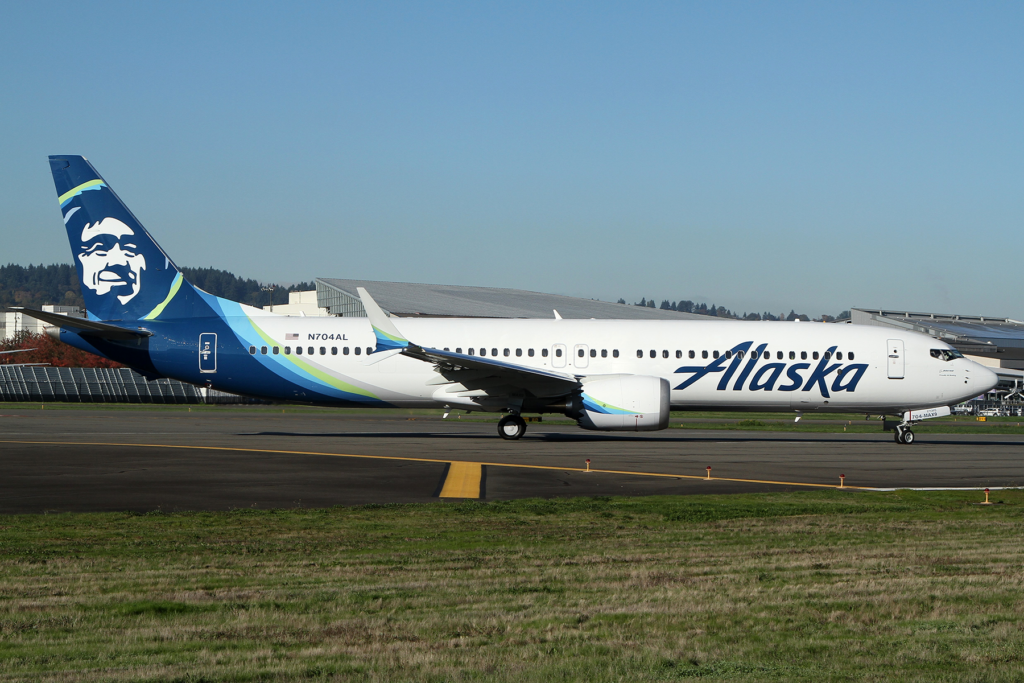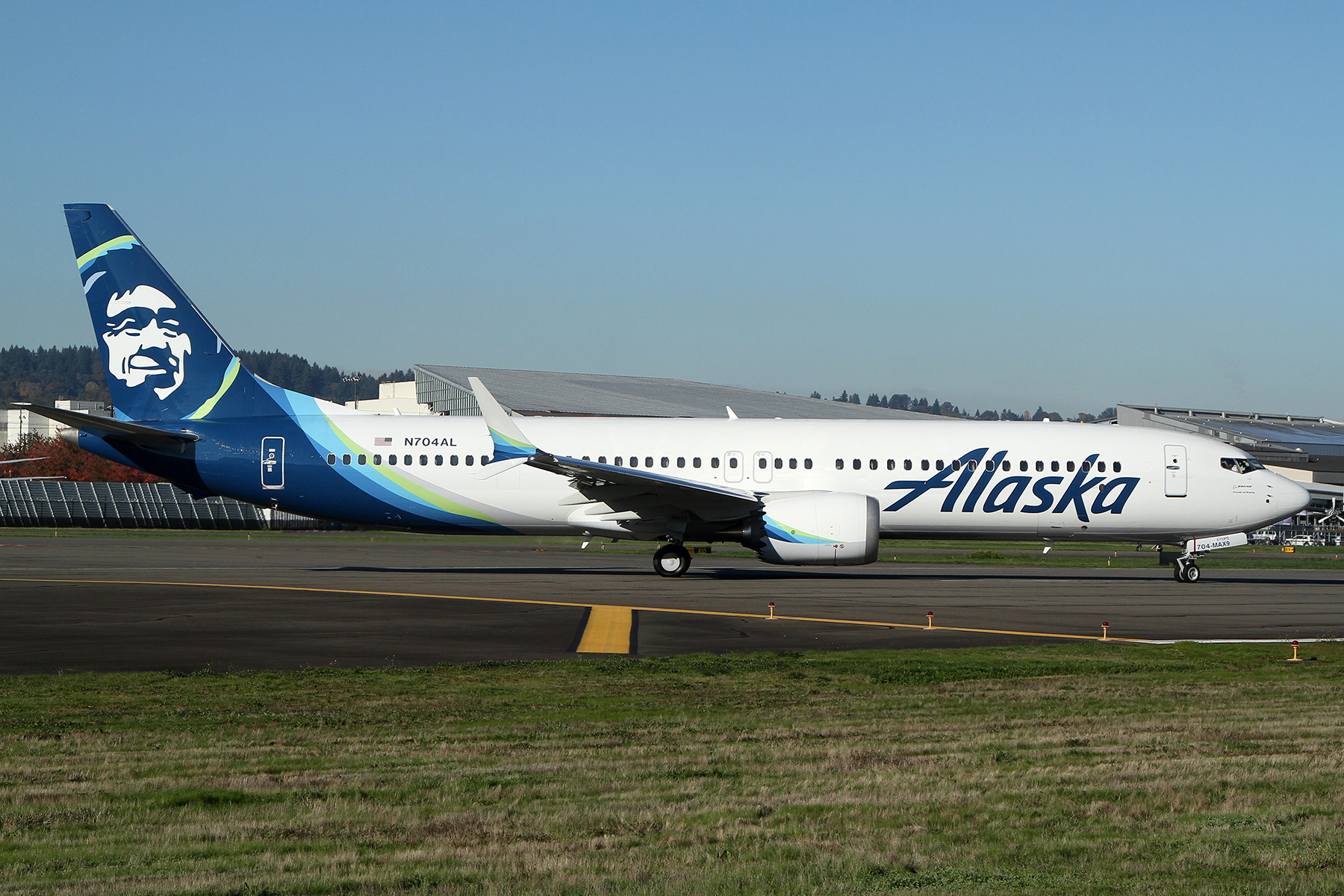NY Times: Alaska 737 MAX Scheduled for Service Before Blowout

The New York Times reports maintenance employees at the carrier asked for the aircraft to be serviced in the days before the incident.
Service Scheduled Before Flights, But Airline Executives Say Issues Were Not Related
According to interviews and document reviews conducted by the newspaper, the aircraft reported two pressurization warning signals in the 10 days before the door plug blowout. The airline’s protocol requires three warnings during a 10-day timespan before an immediate service.
Technical employees at the airline reportedly asked the carrier to take the aircraft offline for immediate maintenance, citing the issue. Schedulers instead ordered the maintenance on January 5, 2024, after completing three flights. Additional restrictions were put on the airplane, including preventing flights over water to Hawaii, or over remote parts of the United States in case of an emergency.
The door plug blew out on the second of the three flights from Portland International Airport (PDX) to Ontario International Airport (ONT).
Despite the warnings, executives for the airline say the warning and door plug blowout were not necessarily related. In an interview with the Times, airline vice president for safety and security Mad Tidwell says the warnings could have been caused by other issues, such as electronics.
“From my perspective as the safety guy, looking at all the data, all the leading indicators, there was nothing that would drive me to make a different decision,” Tidwell said in an interview.
An attorney representing flyers aboard Alaska Flight 1282 disagreed with the opinion of the airline’s executives. Mark Lindquist, who represents some of the flyers taking the carrier to court, says he has doubts on the airline’s argument.
““When jurors find out they’d actually been cautioned by engineers to ground the plane and they put it into commercial rotation instead, jurors will be more than mystified — they’ll be angry,” Lindquist told the newspaper.
Read the full report on The New York Times website.
Feature image courtesy: Nick Dean/Flickr/CC BY-SA 2.0 DEED























For an airline whose stated goal is to "own safety", these are really bad facts for a court case, as well as the court of public opinion. Tidwell's comments are bad now, and will not age well in the future. It's clear that AS assumed a basic level of airframe integrity from BA, and that proved to be a bad assumption. Tidwell and AS own the decision to keep the plane flying after multiple warnings, and against the advice of their own subject matter experts. I suspect that the eventual jury will find this clear and compelling as they find for the plaintiffs.
Anybody remember AS flight 261? Pilots wanted to divert to LAX but "Alaska Airlines dispatch personnel appear to have attempted to influence the flight crew to continue to San Francisco ... instead of diverting to Los Angeles". (CVR) transcripts indicate that the dispatcher was concerned about the effect on the schedule ("flow"), should the flight divert." We'll never know if diverting earlier might have saved the day and the deaths but the delay caused by Alaska management minions on the ground who valued schedules over safety should never be forgotten.
I wonder what costs more--lying to save face or telling the truth and suffering those consequences? I'm guessing from the AA posture, that it's the latter. Sad really when integrity costs more than lying.
A small point of clarification, "AA" stands for American Airlines, Alaska's symbol is "AS".
Well if their safety guy says "there was nothing that would drive me to make a different decision" that just tells me that perhaps he has learned nothing from this incident. Of course this is straight from the American corporate play book. Deny, then double down on the denial.